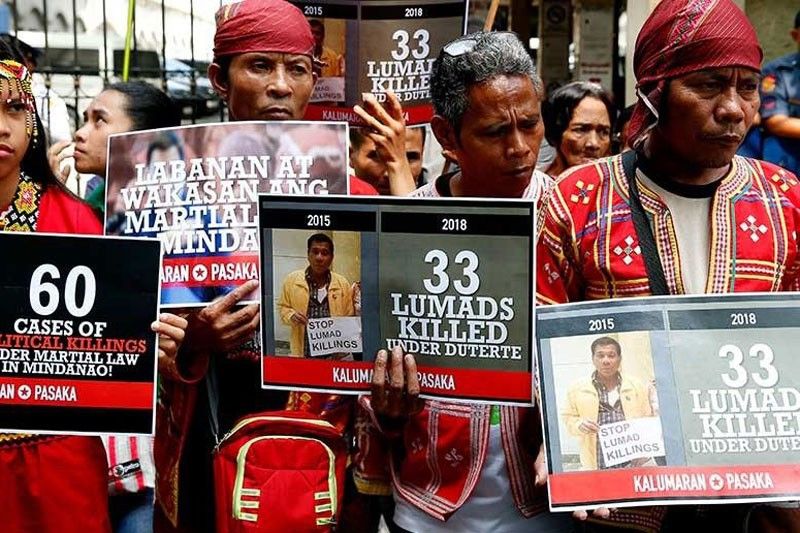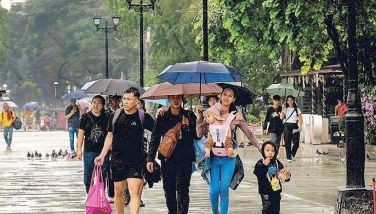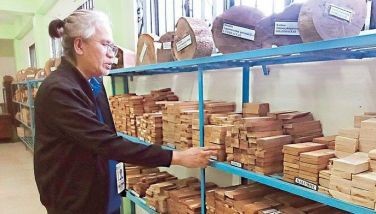Philippines has highest number of killed environmental defenders in Asia

MANILA, Philippines — The Philippines recorded the highest number of killed environmental defenders in the Asian region with 48 deaths in 2017, latest report from an international organization showed.
International non-government organization The Global Witness has reported that 48 individuals were killed in the country last year, a majority related to agribusiness.
Last year was considered the worst year on record globally with 207 land and environmental activists killed across 22 countries, or about four deaths a week. Brazil recorded the highest with 57.
“There is a huge rise in killings linked to consumer products. Brutal attacks on those defending their land from destructive agriculture – such as land grabs for palm oil, used in household goods like soap and coffee – are on the rise,” the report said.
In the Philippines, particularly, The Global Witness cited the TAMASCO massacre in Lake Sebu in South Cotabato last December as among the major killings after seven members of the T’boli-Manubu tribe were killed in a New People’s Army encounter.
Reports of a fact-finding mission by civil society organizations revealed that the community was resisting the encroachment of a coffee plantation, without the consent of the indigenous peoples.
“Local activists are being murdered as governments and businesses value quick profit over human life. Many of the products emerging from this bloodshed are on the shelves of our supermarkets,” Global Witness senior campaigner Ben Leather said.
The report also revealed that some governments and businesses are complicit in the killings, with Global Witness calling for urgent action if the trend is to be reversed.
“Governments, companies and investors have the duty and the power to support and protect defenders at risk, and to guarantee accountability wherever attacks occur. But more importantly, they can prevent these threats from emerging in the first place, by listening to local communities, respecting their rights and ensuring that business is conducted responsibly,” Leather said.
Apart from agriculture, the killings were also linked with mining, poaching and logging.
Local NGO Alyansa Tigil Mina, for its part, expressed concern that President Duterte’s non-mention of indigenous people issues will only exacerbate the situation of lumads who are displaced by militarization and increasing investors on plantations, mining, energy and other large-infrastructure projects.
“There are continuing threats posed by mining projects against the Palawan tribe in Brooke’s Point, the Mamanwas in Cantilan and Lake Mainit and the Bla’ans in Tampakan,” ATM national coordinator Jaybee Garganera said.
“IPs of Mangyans in Oriental Mindoro and Tau-buhid Mangyan from Sibuyan Island, Romblon are also threatened by encroachment of agricultural activities because their ancestral domains have been claimed and titled under the government’s agrarian reform program,” he added.
Because of these, environmental groups are asking the government to order an investigation on the increasing violation and abuse of human rights of affected communities by large-scale agribusiness, mining, energy and other infrastructure projects.
They also called for the full enforcement of government policies and regulations that promote the rights to a safe and sound environment and protect the rights of marginalized communities, particularly women and IPs.
Likewise, ATM raised its opposition to the fast-tracked plan of Charter change and transition to a federal form of government as there is not enough time for the affected communities to have a meaningful engagement in the process.
“Hastily embarking on these political changes will bring more challenges and issues that put pressure on our food, land and water resources, as well as the risks of climate change,” Garganera said.
“Cha-cha and federalism, at this point, will expose human rights defenders to more risks and threats, when the decisions on the extraction and utilization of natural resources are given to compromised political leaders,” he added.
- Latest
- Trending



























